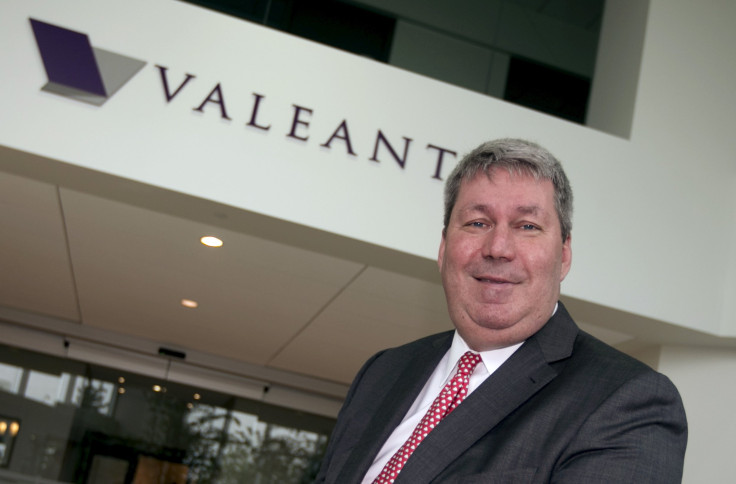Valeant Pharmaceuticals (VRX) CEO Michael Pearson Returns As Company Attempts To Regain Footing

UPDATE: Feb. 29, 11:00 a.m. EDT — Shares of Valeant Pharmaceuticals (NYSE:VRX) fell $7.51, or 9.3 percent, to $73.29, as investors reacted to the news that the company had delayed its expected results call Monday.
The rescheduling announcement came one week after Valeant restated earnings from the prior two years, following an internal investigation that found revenue irregularities surrounding the company’s former specialty pharmacy partner Philidor. The company has not set a date for a new fourth-quarter results call.
Original story:
Michael Pearson will resume leadership of Valeant Pharmaceuticals, the company announced Sunday night, ending a two-month medical leave for the chief executive.
But Pearson's return finds Valeant just as embattled as when he stepped aside in late December to recover from pneumonia. Last week the Canadian drugmaker announced it would restate earnings for both 2014 and 2015, following an internal investigation that found the company had improperly booked revenue from the sale of drugs to Philidor, a now-defunct specialty pharmacy partner.
The company had previously scheduled a call for Monday to apprise investors over the company's updated financials. But in its most recent announcement, Valeant said it would reschedule that call, given the timing of Pearson's return. In the meantime, the company said it would be withdrawing previous financial guidance, leaving investors in limbo.
"I realize that recent events are disappointing to everyone and it is my responsibility to set the appropriate tone for the organization," Pearson said in a statement, adding that he would make a priority of "improving Valeant's reporting procedures, internal controls and transparency."
In previous statements, the company said that $58 million in 2014 revenue had been improperly booked. The adjustments decreased 2014 earnings by 10 cents a share and increased 2015 earnings by 9 cents a share. At issue was the fact that Valeant had booked sales on shipments of drugs to specialty pharmacy Philidor, when in fact the product had only been delivered, not sold to patients.
At the time, the existence of the pharmacy was largely unknown to investors. Yet Valeant had paid $100 million for the right to acquire it, and members of Valeant management were deeply involved in establishing the Pennsylvania pharmacy.
Revelations into the existence of Philidor and some of its business practices prompted investors to dump Valeant shares, the price of which has plummeted 67 percent since September. Valeant eventually cut ties with Philidor, which has since shuttered.
Doubts still weigh on Valeant, however, with Wall Street analysts continuing to issue skeptical notes to investors. Earlier this month Wells Fargo analyst David Maris reduced the company's price target in a report that cast doubt on the durability of the company's business model, which relies largely on acquiring rights to low-cost drugs and then increasing their price.
© Copyright IBTimes 2024. All rights reserved.












